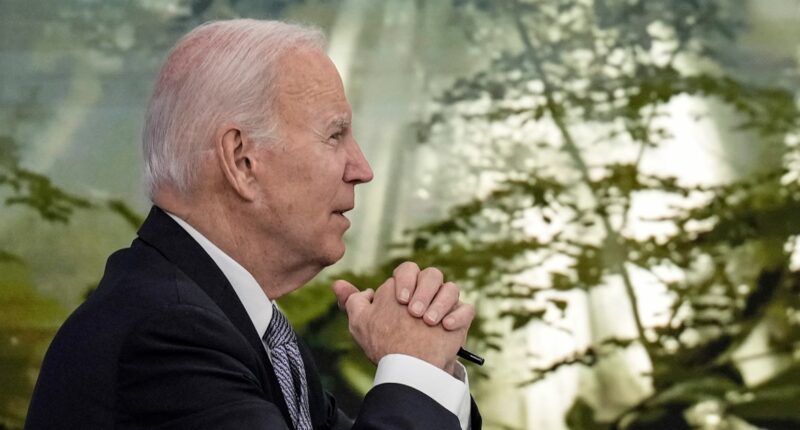
Carbon recycler Twelve makes a wide range of products using waste materials that would otherwise further warm Earth’s climate: Sunglasses, laundry detergent, car parts and even a sustainable aviation fuel it says reduces jet emissions by 90%.
That kind of fuel isn’t cheap. A gallon of sustainable aviation fuel costs almost twice as much as traditional aviation fuel, according to the International Air Transport Association. Carbon recycling technology is broadly expensive, limiting how widely these kinds of systems can be embraced, which can then limit their development and adoption.
The Biden administration took a step to address that chicken-and-egg problem Monday with the announcement of a $100 million grant program aimed at subsidizing carbon recycling purchases by state and local governments, as well as public utilities.
The initiative, spearheaded by the Energy Department, will fund a range of technologies and projects that recycle carbon waste, work to reduce greenhouse gas emissions and build a circular economy — an economic model based on manufacturing goods from things that have already been produced.
Geoff Cooper, CEO of the Renewable Fuels Association, said that the funding will also help stimulate demand and make these technologies more competitive.
“The program will significantly lower the cost of these products for state and local governments and public utilities, which in turn will increase the size of the market for recycled carbon,” he said.
The funding consists of grants to help cities and towns pay for carbon recycling technologies that transform waste emissions into valuable resources. The Energy Department said municipalities can apply for grants to fund projects that either divert waste or reduce future carbon emissions, which can include recyclable materials that would otherwise end up in landfills.
“We’re figuring out how to pull carbon out of our waste emissions or even directly from the air and turn that back into the concrete or the plastic or some other valuable useful thing,” said Noah Deich, deputy assistant secretary for carbon management.
“Even potentially things like aviation fuel or other types of fossil fuel today can be made directly from those CO2 emissions,” Deich said.
Technologies that can capture emissions and reformulate them into other materials are seen as one of many that could put humanity on a path to limit the impacts of global warming. In 2022, the U.N. Intergovernmental Panel on Climate Change included carbon capture, utilization and storage in its list of options for drawing down atmospheric carbon.
Many new and promising technologies are emerging from the sector every day but are often more expensive to implement and challenging to deploy at large scales. A recent study from the Institute for Energy Economics and Financial Analysis found that generating energy using carbon-capture technologies is more expensive than traditional technologies.
The cost of using clean energy technologies is a barrier many industry providers say they face when bidding for municipal projects. Andrew Stevenson, vice president of project development and partnerships for Twelve, said that the Energy Department initiative helps level the playing field.
“This support helps instill confidence in the growing market for carbon transformation, a critical element as the industry scales, and will help further drive the growth of green manufacturing and clean energy jobs,” he said.
The Energy Department said that the U.S industrial sector is responsible for one-third of all the country’s carbon emissions. It hopes that by subsidizing carbon-capture projects for municipalities, it can not only create new jobs, but also successfully demonstrate that these technologies reduce greenhouse gas emissions.
“And what it really is opening is this entirely new way of thinking, which is, ‘What if we didn’t build with these primary fossil fuels? What if we turned the waste that has been created by those fossil fuels into the building material?’” Deich said.
Carbon-capture companies receiving funds will be asked to submit their technology to the Energy Department’s National Energy Technology Laboratory to verify that their products actually reduce carbon.
Source: | This article originally belongs to Nbcnews.com









